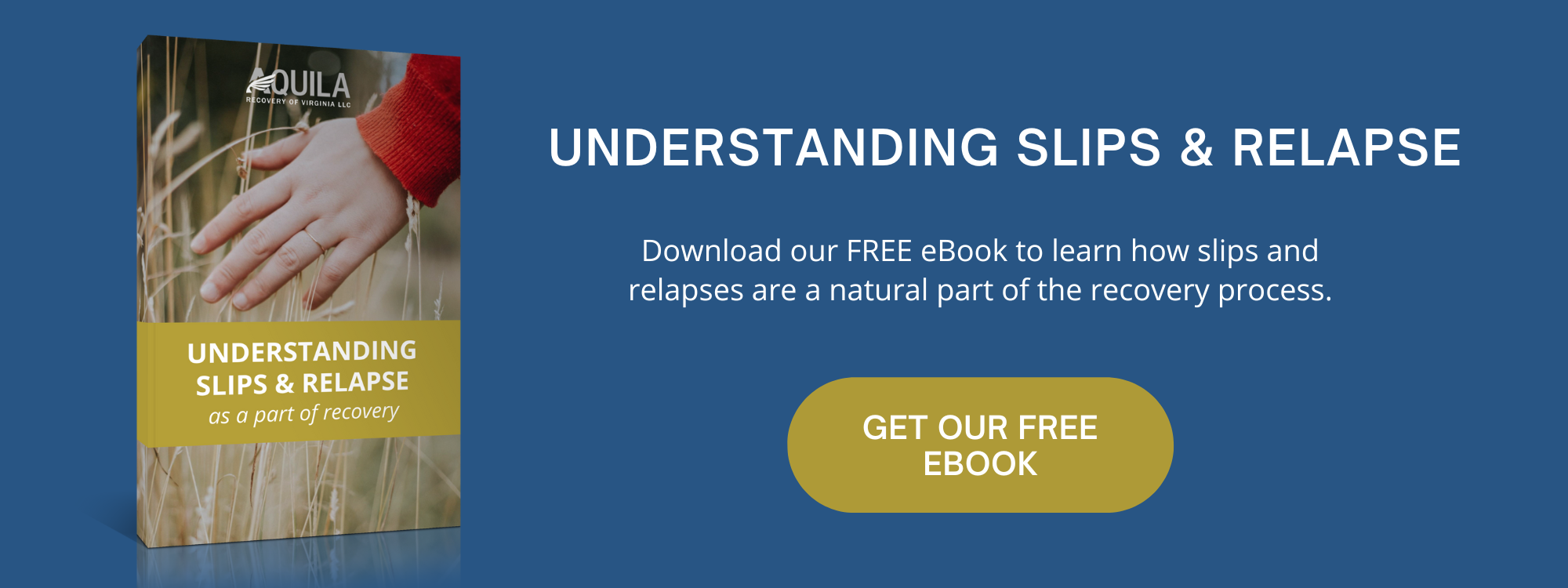How to Get Sober Without AA
If you’re in the addiction recovery space, you’ve likely attended Alcoholics Anonymous, or know...
%20(17).png)
The first days and weeks of sobriety can be especially difficult as the body and mind adjust to life without alcohol. There are both positive and negative aspects when it comes to what to expect when first getting sober.
While sobriety is a beautiful thing, there are still many difficult aspects of the addiction treatment process that you will most likely face at the start of your sobriety journey

Fortunately, these challenges become easier over time as your body and mind adjust to the lack of alcohol. Here are a few things to be prepared for as you embark on this journey:
When you first decide to get sober, the alcohol withdrawal process can be extremely difficult. You may experience uncomfortable physical symptoms such as nausea, headaches, shakes, sweating, and anxiety.
These are all part of alcohol detox and are referred to as withdrawal symptoms. Although these symptoms can be intense at first, they will subside, and you should see a decrease in severity after a couple of weeks without alcohol.
Overcoming alcohol cravings is one of the most difficult aspects of maintaining sobriety. When you are addicted to alcohol, your body and mind are conditioned to seek that pleasure constantly.
This is why it's so difficult to quit addictive habits - your brain doesn't understand why you're not getting that dopamine rush anymore.
It's important to remember that cravings are a normal part of the recovery process and will likely occur from time to time, but with the right strategies, it is possible to manage them and stay sober.
Triggers
Triggers can become very apparent when you first stop drinking. There are environmental triggers, such as certain bars or places where you would normally drink, as well as emotional triggers (such as stress or anxiety), which can trigger cravings for alcohol.
%20(17).png?width=1000&height=500&name=Blog%20Cover%20(1000%20%C3%97%20500%20px)%20(17).png)
You will be challenged to deal with stress and difficult emotions and situations without the help of alcohol. You will have to learn other coping mechanisms to help you manage these triggers.
Social pressures can also feel intense when you first get sober, as many people won't understand or accept your decision to get sober. Be sure to surround yourself with positive influences in your life who actually support your decision to stop drinking.
Many individuals who are newly sober or have been sober for a while experience mood swings. These mood swings can be very uncomfortable and disruptive, making it challenging to function normally.
They can range from mild mood swings to full-blown depression, and they typically last for several days. However, remember that these mood swings are normal and part of the sobering process.
Sobriety can be lonely at times, and you may not see certain people as much as you did before getting sober. You may lose friendships or experience changes in your relationships as a result of your sobriety.
Even though this can be painful, it's important to surround yourself with people who support your sobriety and to get involved in a support network, such as a substance abuse support group, that understands what you're going through.
Some people stop drinking, thinking that they will never experience a relapse. However, relapse is a very common occurrence in recovery. With all of the difficulties involved in getting sober and maintaining sobriety, it's no wonder that relapses happen.
It's important to understand that relapse is not a sign of weakness but rather an indication that something in the recovery process needs to be re-evaluated and changed.

Things that can help prevent relapse include developing healthy coping strategies, building a strong support system, and being aware of personal triggers. It's also important to address any underlying mental health disorders, such as bipolar disorder, that may have contributed to the alcohol abuse in the first place.
Although the journey to sobriety might seem overwhelming, the benefits last much longer than any of the initial drawbacks. Here are just a few of the benefits you can expect when getting sober.
One of the most frequently cited benefits of sobriety is having improved sleep, since alcohol can severely disrupt your sleep patterns. Getting better sleep can lead to other improvements, including feeling more energized and positive.
Reduced stress levels, increased self-esteem and confidence, better sleep habits, and decreased anxiety are all factors that contribute to improved mental health during sobriety.
%20(18).png?width=1000&height=500&name=Blog%20Cover%20(1000%20%C3%97%20500%20px)%20(18).png)
When alcohol is no longer a part of a person's life, they may be able to set new goals and pursue activities that they were previously unwilling or unable to do due to their drinking.
Being alcohol-free also allows you to start dealing with difficult emotions in a healthier way, which gives you the space to actually start to heal your mental health.
Excessive drinking can lead to poor decision-making and a loss of trust in personal relationships. When a person gets sober, they are able to communicate more effectively, tend to have a better handle on their own emotions, and can take accountability for their actions.
This can result in developing healthier relationships and restoring relationships that may have been damaged due to excessive alcohol use.
Sobriety allows you to identify and analyze your thoughts and feelings more easily. This enables you to make more informed decisions based on what is truly important to you rather than being swayed by emotion or temptation.
You'll also be less likely to engage in harmful behaviors, such as drinking or using drugs because you're aware of the negative consequences.
When it comes to navigating early sobriety, there are a few key things to remember that can help you maintain your sobriety.
Have realistic expectations - Sobriety has its challenges, and it’s important to go into the process knowing that it will require hard work in order to maintain sobriety.
Engage in hobbies - Participate in activities that keep you busy and active, that bring you joy.
Take care of your physical health - Your physical health is closely linked to your mental health. Make sure you are getting enough exercise, eating balanced meals, and getting enough sleep each night.
Seek support - Attend therapy or support groups, and lean on friends and family.
Know your triggers and how to manage them - Once you know what triggers you to drink, you can develop a strategy for how to combat them.
Be patient - Healing does not happen overnight, and recovery is not a linear process. Give yourself grace, and be proud of yourself for doing your best.
The answer to how long it takes to get sober is dependent on a number of factors, including the person's relationship with alcohol and the severity of their addiction. Recovery is also not a linear path, and there may be slips and relapses along the way.
%20(19).png?width=1000&height=500&name=Blog%20Cover%20(1000%20%C3%97%20500%20px)%20(19).png)
Getting sober can be a long and winding road, but it's definitely worth it and it is important to remember not to compare your recovery journey to someone else’s. Every person is different, and every recovery journey will be different.
When first getting sober, it's important to expect that the journey will be difficult and that there will be setbacks. Getting treatment for alcohol addiction is often the best option for getting the support that you need in order to put addiction behind you for good.
If you or a loved one are struggling with a drug or alcohol addiction, Aquila Recovery of Virginia is here to help.
We offer a variety of outpatient treatment programs, including an intensive outpatient program (IOP), which allows clients to receive structured treatment, while also giving them the flexibility to live their lives.
Always remember that you are not alone in this journey. Speak to our addiction recovery staff at to learn more about our programs and how we can help.
If you’re in the addiction recovery space, you’ve likely attended Alcoholics Anonymous, or know...
Many people who struggle with addition to alcohol or drugs also have difficulty controlling the...
Whether you’re quitting for a little while or you think that you may have a dependency or substance...